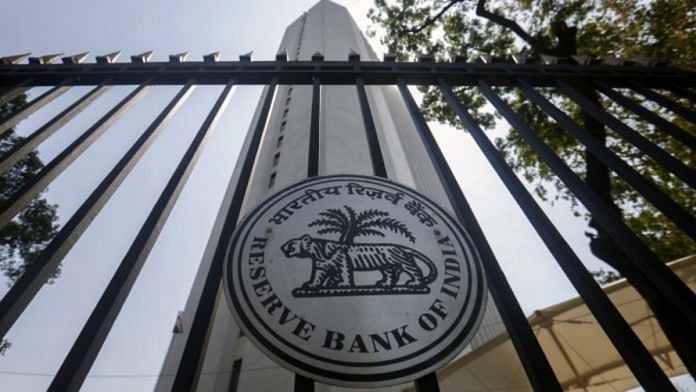New Delhi: In a list of recommendations presented by an Internal Working Group (IWG) to the Reserve Bank of India on 20 November, it has been suggested that private corporations be allowed to enter the Indian banking system.
The IWG was created to review extant ownership guidelines and corporate structure for Indian private sector banks. One of the recommendations made by the working group — for permitting entry of corporate houses into the banking sector — include necessary amendments to the Banking Regulation Act, 1949 to prevent connected lending.
In episode 628 of ‘Cut The Clutter‘, ThePrint’s Editor-in-Chief Shekhar Gupta explains what allowing Indian corporate houses into banking means and lays out some of the pros and cons of it.
Connected lending, Gupta said, can work in different ways and it basically means “taking money out of one pocket and lending it to the other”.
“Either a private company can get its own bank to lend money to itself or banks can lend to each other based on the special connection that private companies might share,” Gupta explained.
Another condition recommended by the IWG was raising the cap on promoters’ stake in private sector banks to 26 per cent over a period of 15 years. The group has also suggested that non-promoters’ shareholding be capped at 15 per cent.
“The biggest pro will be that India’s banks need capital and a lot of people do not have access to banking in the country. The government keeps picking money from the tax payers pocket and funding its public sector undertakings. So letting private sector into the mix will help bring an end to this,” Gupta said.
Also read: 10 reasons why the Supreme Court is looking like a court of ‘trivial pursuits’
Problems with the proposal
Talking about disadvantages of the IWG’s recommendation, Gupta said there were “too many of them”.
Gupta also mentioned concerns raised by former RBI governor Raghuram Rajan, former RBI deputy governor Viral Acharya, former chief economic advisors Shankar Acharya and Arvind Subramanian, former finance secretary Vijay Kelkar, and economist Vivek Kaul about bringing corporate houses in banking.
“The banking sector in India has been in trouble for the last few years, keeping that in mind the RBI is 2016 had created new guidelines on limit of lending to a single company. If a bank lends too much to one company only then it risks losing that money if the company sinks. Compare that rule with the new proposal, which only large companies will be able to fulfill. With the new rule, the RBI will create large capital, large entrepreneurship and large lending capacity, which, all in one hand is not healthy,” Gupta said.
He also said this will lead to the creation of money into the hands of some, which could corrupt politics even more. “And they say, in the best of all worlds, powerful regulators need to be truly independent and impartial boards. But such a thing does not exist in India, if anything, the independence of the regulators and institutions in India has been under an attack, and they’ve been getting weaker by the day instead of getting stronger.”
Public sector banks in the country have become “blind wells”, said Gupta, in which the government keeps throwing money with no returns. In order to revive taxpayers’ and depositors’ money, the government will have to either sell these banks to private players or find other public sector undertakings to return the amount.
Gupta also refers to Ila Patnaik and Radhika Pandey’s article in which they have said how Indian banking regulators are not strong enough to prevent connected lending and the move to bring private players was too risky. The article also said that Indian banking system does not have the desired supervisory capacity. Had it existed, self-destruction of banks like the Yes Bank could have been prevented.
Gupta added, “Mixing industry and finance will set us on a road that is dangerous for growth, public finance and the future of the country itself. So I would say there will be a time to bring in larger banking reform but that time is not now. This is not the time to invite corporates and tell them to bid for PSU banks.”
Watch the full episode of CTC here:
Also read: India’s RCEP exit & lure of protectionism versus creative destruction of capitalism




Plz provide in hindi ??
One factor which is colouring our view about this proposal is the dismal state of the economy. Had it been growing strongly at close to 8%, with most business groups doing well, ordinary citizens would not have felt so apprehensive about industrial houses owning banks. Imagine Anil Ambani running a bank. 2. The aspect of interconnected lending can be addressed through simple, easy to enforce limits. Reliance today is one big company. Disaggregated, the core business of oil refining, with an appendage of petrochemicals. Telecom. Retail. If not more than, say 20%, can be lent within the group, that would not be difficult to monitor or control. 3. The RBI needs a jar of Viagra. Looking very limp, flaccid. It should have pulled the plug on Yes Bank much, much earlier. Even ILFS, DHFL. Whatever the regulatory architecture, these are all systematically important financial institutions. It cannot be like the cuckold who is the last to learn what is happening in town.